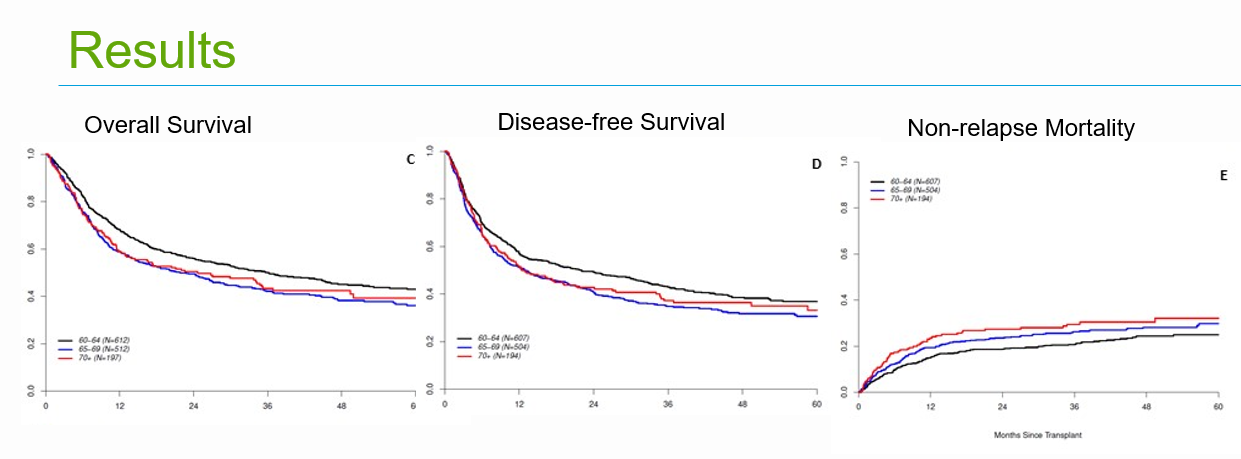In a large, retrospective study, researchers at the CIBMTR® (Center for International Blood and Marrow Transplant Research®) examined the outcomes and predictors of success in a large cohort of patients aged 60 years and older receiving allogeneic hematopoietic cell transplantation (HCT) for acute myeloid leukemia (AML) in first complete remission (CR1) by comparing rates of overall survival (OS), disease-free survival (DFS), non-relapse mortality (NRM), relapse, acute graft-versus-host disease (GVHD), and chronic GVHD. AML has a median age at diagnosis of 67 years and allogeneic HCT remains the only curative therapy.
The study found that high-risk features such as poor cytogenetics and the presence of minimal residual disease (MRD) prior to HCT were significantly associated with relapse and accounted for the most adverse impact on OS and DFS versus age. In the case of acute or chronic GVHD, age did not influence incidence—graft type and associated GVHD prophylaxis were more significant. Researchers also concluded that age had a small effect NRM after accounting for other predictors.
From 2007 to 2017, 1,327 patients reported to the CIBMTR receiving HCT in three age cohorts (60-64; 65-69; 70+) that had comparable demographics and disease status. The 70+ group included more males, de novo AML and higher rates of pre-HCT MRD. The 70+ cohort also included fewer matched sibling donors, likely due to the advanced age and suitability for donation and HCT performed in more recent years.
The results suggest that efforts should focus on minimizing residual disease prior to HCT and better donor selection as age alone is not a barrier to successful HCT for AML in CR1.

